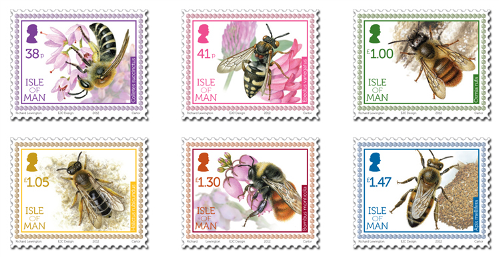The European Commission wants to suspend for two years the use of three neonicotinoid insecticides on crops attractive to honeybees and prohibit the sale and use of seeds treated with plant protection products containing these active substances, according to a proposal put forward at a meeting of the Standing Committee on the Food Chain and Animal Health (SCFCAH), on 31 January. The restriction is targeted at clothianidin, imidacloprid and thiamethoxam, applied as granules, seed treatment or spray on maize, oil seed rape, sunflowers, cotton and cereals (except from winter cereals). "We are requesting (that) member states suspend for two years the use of this pesticide on seeds, granulates and sprays for crops which attract bees," Commission health spokesman Frederic Vincent told a regular daily briefing. “These are proportionate measures. We are giving the member states two years to see whether it’s working. Then we will see if we need to review the legislation in Europe,” the Commission’s spokesperson for health and consumer policy, Frederic Vincent, said on 31 January. The Commission hopes that a decision on the suspension would be taken in a form of a regulation on 25 February at the SCFCAH level and will enter into force on 1 July. A report from the European Food Safety Authority (EFSA) earlier this month said three widely-used neonicotinoid pesticides, made by Switzerland's Syngenta and Germany's Bayer, posed an acute risk to honeybees.
Earlier this week, the agriculture ministers held a discussion on the EFSA’s report and the information note put forward by the Dutch delegation. The paper called on the Commission to take action at Community level “where high risks have been identified”. It urged the member states to coordinate their approach to gathering data in order to close the gaps identified in EFSA’s report. A number of member states supported the Dutch proposal, including France, Belgium, Poland, the Czech Republic and Greece. Slovenia and Italy have already introduced restrictions on the use of neonicotinoid pesticides on certain crops (Slovenia has imposed a full ban). Some countries, including the UK, Spain, Hungary, and Denmark, expressed reservations, insisting inter alia that more research is needed before a decision imposing restrictions is taken.
The issue was also raised, on 31 January, at the EP’s Committee on Agriculture (AGRI) by Julie Girling (ECR, UK), who described the Commission’s proposal “as not proportionate at all”. She insisted that the root of the problem lies in the overuse of neonicotinoid pesticides rather than in their proper application. Meanwhile, Parliament’s Committee on the Environment (ENVI), which is in charge of the file, has called for a ban on certain uses of neonicotinoid pesticides.
As promised by commissioner Tonio Borg at the Agriculture Council last Monday, the Commission put to the Member States this morning a "discussion paper" on 3 nenicotinoids (NNI) – clothianidin, imidacloprid and thiamehtoxam – following the publication by EFSA (on 16th Jan.) of a report which identified "high acute risks" for bees as regards exposure to dust in several crops such as maize, cereals and sunflower, to residue in pollen and nectar in crops like oilseed rape and sunflower and to guttation in maize.
Below is the current state of play, details on the actions envisaged by the Commission and potential timeline for adoption of a Regulation :
• In AGRI Council on 28th January, Commissioner Borg announced that, following EFSA's report on the effects of 3 neonicotinoids (NNI) on bees, it was time for a "swift and decisive action" and that he was ready to table a "set of ambitious but proportionate legislative measures".
• A first discussion with Member States experts on the EFSA conclusions took place at the Standing Committee on 31 Jan.
• During the Standing Committee, the Commission proposed for discussion ("discussion paper") with Member States the measures below:
1) amend the conditions of approval of the 3 NNI in order to restrict the use only to crops non attractive to bees and to winter cereals (as dust exposure during autumn is not considered a major issue).
2) prohibit the sale and use of "seeds treated" with plant protection products containing these active substances. This provision will not apply to treated seeds of plants non attractive to bees and to treated seeds of winter cereals.
3) both measures referred to in points 1) and 2) have to be implemented at the latest by 1 July 2013. This will not affect the forthcoming sowing season for maize.
4) To review of both measures by the Commission after 2 years.
The Commission will review the conditions of approval of the 3 neonicotinoids (clothianidin, thiametoxam and imidacloprid) to take into account relevant scientific and technical developments.
5) Restrict the use to professional users.
• What will happen now ? Next steps:
1. 7 February 2013 : an ad hoc meeting of the Advisory group of the Food Chain (including ECPA, ESA, Copa Cogeca, PAN, and others) is to be informed on the actions proposed by the Commission.
2. Commissioner Borg's services will launch formal consultation on a set of draft regulations.
3. 25 February 2013: Vote planned in the SCoFCAH Pesticide residues
Sources:
Frédéric VINCENT
Spokesperson Health & Consumer Policy
Porte-parole Santé et Politique des Consommateurs
Europolitics, 31 January 2013
http://www.europolitics.info/sectorial-policies/neonicotinoids-exec-wan…
Reuters, 31 January 2013
http://uk.reuters.com/article/2013/01/31/eu-pesticides-idUKL5N0B08L2201…

- Log in to post comments
